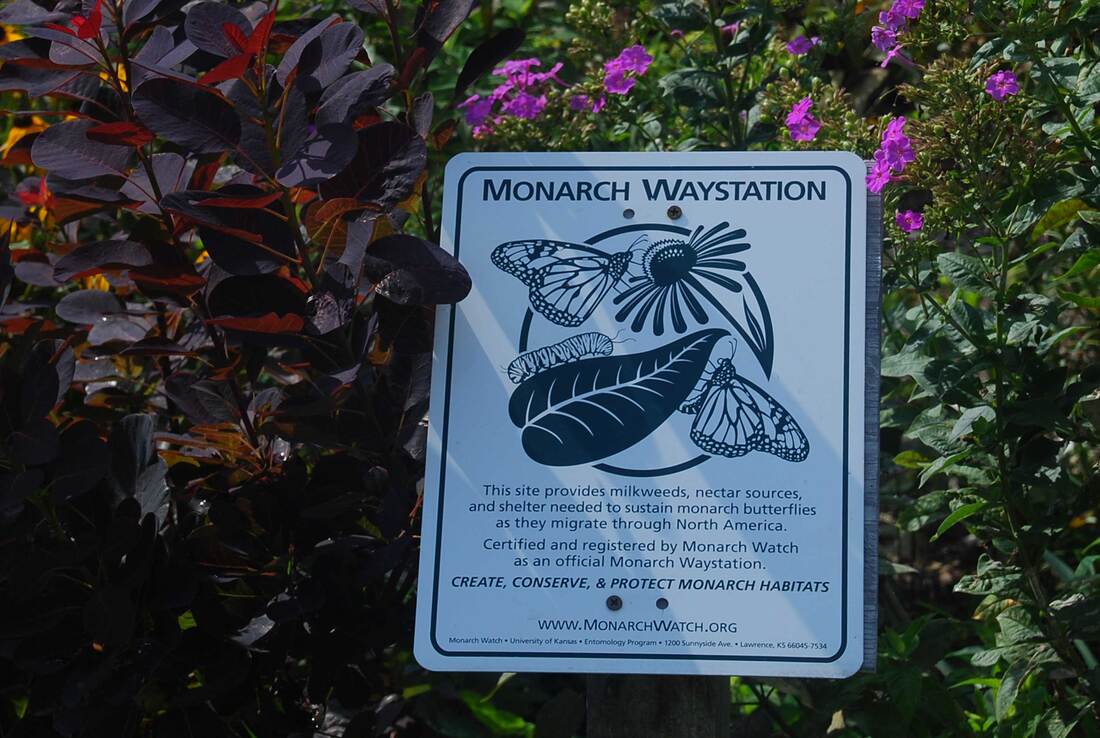|
North Country Master Gardener Volunteer’s perennial garden is located at Spooner Ag Research
Teaching and Display Garden. It was completely redesigned and replanted with pollinator friendly and native plants completed in spring 2016. We saw the perennial garden as an ideal space for creating a Monarch and Pollinator Sanctuary (MAPS). We undertook this project as we learned more about the loss of pollinator habitats. Habitat loss is a result of disease, parasites, environmental contaminants and development of pristine land. Habitat loss contributes to the decline of many species of pollinators. The well-known and celebrated annual Monarch Butterfly migration south for winter and back north in Spring is a huge natural phenomenon, but has faced diminishing numbers of butterflies. Three-fourths of the world’s flowering plants depend on pollinators to reproduce. Most fruit, vegetable, seed crops - and other plants that provide fiber, medicine and fuel are pollinated by animals. A significant portion of the food we eat exists because of animal pollinators such as bees, butterflies and moths, birds and bats, beetles and other insects. Bees are the main pollinators for fruits and vegetables. They nest underground, in twigs and dead trees. There are over 250 species of bees native to North America. Bees are often considered pollinator superheroes, having adaptations which allow them to collect and transport pollen and nectar. They have the unique ability to “buzz pollinate” plant species with pollen but no nectar, such as tomatoes, cranberries, apples, cherries, blackberries, blueberries, alfalfa, red clover, snapdragons and foxglove. Butterflies seek nectar in the daytime, moths at night. Monarch caterpillars need milkweeds to grow and develop – common milkweed is most important although a variety is recommended. Monarchs need nectar to provide energy to breed, to sustain their migratory flights and to build reserve for w nter. Butterflies can see red, and love colorful flowers in warm colors. Hummingbirds are the most common avian pollinators in the US, and they love the color red. Two species of bat are major pollinators in the desert Southwest. Beetles and other insects are common flower visitors and pollinators. My personal favorite is the Midge fly, the only animal small enough to pollinate the cocoa flower, giving us billions of pounds of chocolate annually! MAPS provides habitat for pollinators to help them thrive. Measures incorporated into the garden include: • pollinator friendly plants, shrubs and trees • mix of plants with various colors and bloom times • no insecticide use • bee nesting boxes • natural compost for fertilization • removal of invasive species • thinning and mulching plant beds • trees, shrubs and vines as well as fruits and flowers Our Monarch and Pollinator Sanctuary continues to thrive, and is a designated Monarch Way Station. You are welcome to visit – we are always open! Author: Janet Mangold, Master Gardener Volunteer
0 Comments
Leave a Reply. |
|
| North Country MGV | gARDEN bLOGS |
Location |
|

 RSS Feed
RSS Feed